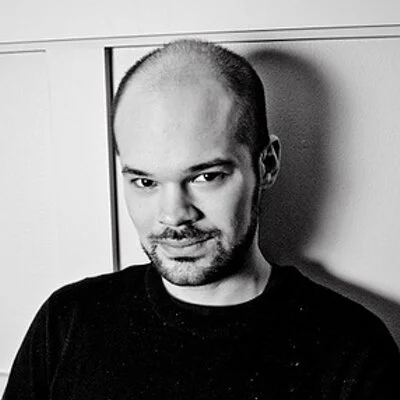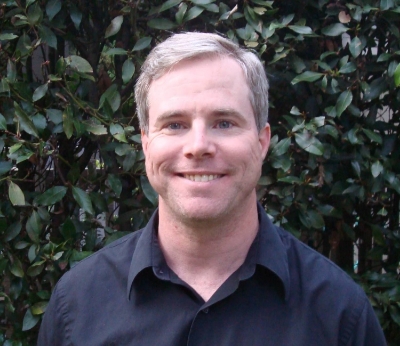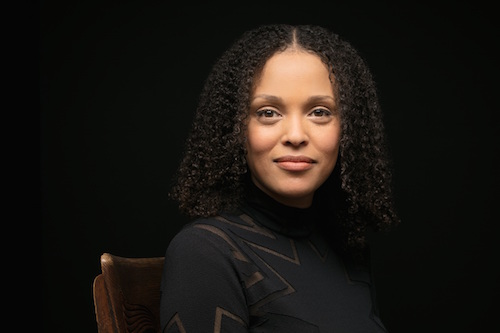Dark and Brutal: The Inner Code of Nick Kolakowski’s Boise Longpig Hunting Club
Write the World You Want: America for Beginners Author Leah Franqui
Author Bella Mahaya Carter Explores Self-Love and Holistic Healing in New Memoir
‘Casual’ Creator Zander Lehmann Looks Back on Four Years of His Hulu Dramedy
Dissecting A Decade-Long Writing Process With The Incendiaries Author R.O. Kwon
Author Rosalie Knecht Reimagines the Spy Game With Who Is Vera Kelly?
A Conversation With The Great Believers Author Rebecca Makkai
Match Made in Manhattan: 9 Questions With Playing With Matches Author Hannah Orenstein
Nancy Rommelmann Investigates How A Mother Could Kill Her Own Children in To the Bridge
Silver Girl Author Leslie Pietrzyk on Sparking Literary Bonfires
In Orbit: 7 Questions With Artemis Author Andy Weir
By Caitlin Malcuit
Andy Weir shoots from Mars to the Moon in his latest novel Artemis, introducing us to a wealthy and exclusive lunar colony where Jasmine Bashara works as a porter, struggling to get by. There's not much money to be made in that gig, so Jasmine—“Jazz”—must survive and earn her keep as a smuggler. When a heist too good to pass up unearths a larger conspiracy, Jazz is thrown into the seedy underbelly of the glitzy Artemis.
Weir talked to me about the new and exciting setting for his story, his influences, and imparted some valuable advice for writers navigating the publishing world in the digital age.
Caitlin Malcuit: What is your process for writing a novel, especially the research that goes into science fiction?
Andy Weir: I start with a bunch of research. For me, the science and setting have to be right before I’m willing to work on the story. Once I’m into the actual writing, I set myself a daily word count to shoot for.
CM: Which authors influenced you?
AW: I’m a Gen-Xer, but I grew up reading my father’s sci-fi collection. So, despite my generation, my main influences are the Baby Boomer era authors. My holy trinity are Heinlein, Asimov, and Clarke.
CM: What drew you to setting Artemis on a lunar colony?
AW: I wanted to write a story about the first human settlement off of Earth. And I just really think that’ll be on the Moon. It’s so much close to Earth than any other celestial body. Most importantly, it’s close enough for trade and tourism.
CM: Jazz is certainly driven to survive, as Mark Watney was when he was stranded on Mars, but, given the wealth disparity on Artemis, what inspired you to tackle Jazz’s unique situation?
AW: Well I’ve always had a love of heist stories and crime novels. So I figured why not do a sci-fi heist story?
CM: Are you excited to see where Phil Lord and Chris Miller will take Artemis as they bring it to the screen?
AW: Absolutely! Though it’s still early days yet. I try not to get myself too worked up about it. A lot of things have to go right for a film project to be greenlighted.
CM: What advice do you have for aspiring writers, especially now that NaNoWriMo is in full swing?
AW:
- You have to actually write. Daydreaming about the book you’re going to write someday isn’t writing. It’s daydreaming. Open your word processor and start writing.
- Resist the urge to tell friends and family your story. I know it’s hard because you want to talk about it and they’re (sometimes) interested in hearing about it. But it satisfies your need for an audience, which diminishes your motivation to actually write it. Make a rule: The only way for anyone to ever hear about your stories is to read them.
- This is the best time in history to self-publish. There’s no old-boy network between you and your readers. You can self-publish an ebook to major distributors (Amazon, Barnes and Noble, etc.) without any financial risk on your part.
CM: Can you please tell us one random fact about yourself?
AW: I like to do woodworking. It’s a hobby that’s helpful to me to clear my mind when I’m stressed out or when I’m stuck on a plot problem in whatever project I’m on.
To learn more about Andy Weir, visit his official website, like his Facebook page, or follow him on Twitter @andyweirauthor. Also read our last interview with the author!
The Writer’s Bone Interviews Archive
Live Deeply: 9 Questions With Snow Author Mike Bond
By Sean Tuohy
Three hunters stumble onto a crashed plane filled with cocaine in the Montana wilderness.
That’s the premise of acclaimed author Mike Bond’s latest thriller, Snow.
Bond recently took a few minutes out of his day to sit and chat with me about the new book and his advice for aspiring writers.
Sean Tuohy: When did you know you wanted to be a storyteller?
Mike Bond: By the time I was 10 I was writing poems and thinking of stories. To the young the world is magical and full of stories. All you have to do is write them down.
ST: What authors did you worship growing up?
MB: I never worshipped anyone, but I read everything, especially Hemingway, Edna Ferber, Jane Austen, the Brontës, Walter Scott, Jack London, Willa Cather, Poe, Camus, Sartre, St. Exupéry, Tolstoy, and many others.
ST: What is your writing process like? Do you outline or just vomit a first draft?
MB: I tend to write each book differently. Most I just pick up at the first sentence and write a lot of it without an outline. Or I outline only the next several chapters as I go along.
ST: What inspired Snow?
MB: I was bowhunting with a friend on a two-week horse trip back into the Montana wilderness. The constant snow and frigid conditions, plus several unpleasant encounters with grizzly bears, started the process.
ST: Snow follows four characters, but the breakout is a former NFL player named Zack. Where did this character come from?
MB: I played a lot of football, tried to make it into the NFL, but like so many football players I got so repeatedly injured that there was no way. I love playing football but have no use for watching it on the idiot box. (That’s the difference between living and being entertained.) I know a lot about the game and have a lot of friends who’ve played it, and I wanted to show it as it really is. Zack is the average football star today—multiple lifelong injuries, traumatic brain damage, constant pain, atavistic impulses, and lots of painkillers and other drugs.
ST: Snow is an edge-of-your-seat thriller but it has a fantastic human element to it as well. When writing, do you focus more on the character or the plot?
MB: I just tell the story as it is told to me. Often I can’t tell it right and have to keep rewriting it till the drama I’m seeing in my head is correctly depicted on the page.
ST: What’s next for Mike Bond?
MB: I’m finishing a 1,000-page epic on the 1960s, due out next year. And finishing the third in my Pono Hawkins series, also due out next year. This one is set in Tahiti and Paris.
ST: What advice do you give to young writers?
MB:
- Live deeply or you won’t have much to write about.
- Writing is developed from experience—from many places, lifestyles, experiences, relationships, dangers, fears and great joys. Write about that.
- Don’t write about what you don’t know about or haven’t lived through.
- Avoid creative writing classes, writing clubs, and any other collective self-reassuring groupthink.
- Don’t ever tell people what you’re writing about till it’s done, or you can kill the deep subconscious affinity between yourself and it.
- Expect to write a million words before you begin to get the hang of it.
- It’s very difficult these days to get published. But writing daily is a very good way to “Know Thyself” as they used to say at Delphi.
- Don’t expect too much of yourself. If the writing is fun, keep going. If it’s not, stop. If it’s boring to you it will be boring to the reader too.
ST: Can you please tell us one random fact about yourself?
MB: I love wild animals, wilderness, women, booze, fast cars, mountain climbing, and risk.
To learn more about Mike Bond, visit his official website, like his Facebook page, or follow him on Twitter @MikeBondBooks.
The Writer’s Bone Interviews Archive
Dedication and Discipline: Sing, Unburied, Sing Author Jesmyn Ward On Writing
Jesmyn Ward (Photo credit: Beowulf Sheeha)
By Adam Vitcavage
Jesmyn Ward is the only author I think about on a weekly basis. Her stellar Salvage the Bones is the only novel I recommend to nearly everyone looking for a new book. If I don’t murmur the words, “Jesmyn Ward’s Salvage the Bones,” in any given week, then I at least think about how much her bleak and beautiful novel punched me in the stomach while simultaneously uplifting my spirits. Now, there’s a new novel from her I can suggest: Sing, Unburied, Sing.
I recently interviewed Ward, and I felt aspiring writers and readers of Writer’s Bone might find her comments about her writing process both encouraging and educational.
Adam Vitcavage: What excites you in the undergraduate writers you teach at Tulane University?
Jesmyn Ward: The writers who take my courses write across multiple genres. Some are writing YA, fantasy, or surreal literary novels. It just depends on the student. I love it all. What really attracts me to my students work and what makes me appreciate them is the passion that they have. I think that comes out in the work even if the work is not that polished or developed as it could be. That’s what I’m there for. I’m there to help them develop and polish it. Their passion for writing, telling stories, and creating worlds is what attracts me to their work.
AV: Once you get going with a draft for a novel, do you have a set writing process?
JW: I am a very linear writer. I work from the beginning to the end. I start at the first chapter and end at the last chapter. I don’t revise as I’m going because I feel if I stop to revise the things that I’ve written that I will get bogged down and will never complete the book. So I don’t revise and I just write straight through. I try to write for at least two hours a day for five days a week. Sometimes that is easier. I have two children, so when I have child support for them or when they’re in school is when it’s easier for me to do that. Sometimes I have to patch those hours together. I’ll wake up early and work for an hour then work for an hour later in the day when I have time.
I feel like the more disciplined I am about writing for two hours a day five days a week then the easier it is for me to access my creativity. I think it takes less time to sink into the world and to do the writing I need to do when it’s something I do five days a week. That’s how you write a book: it’s something you work at every day pretty regularly for at least a year if not a year and a half or two years. And that’s considered fast. I know some people take a decade on a book. I understand why.
It’s all about hours of dedication and discipline.
AV: Once you get the draft done, what does your revision process look like? What do you look for?
JW: The way that I revise is a little weird. I finish the first draft and then I let it sit for a month. I’ll work on other small things during that time and then I go back. I’ll read through the rough draft. Just read and take notes about things that need to be revised, changes that need to be made, things that can be cut or moved around, or whatever. I make a list and go through that list. I’ll concentrate on one thing on the list while reading through the draft. I devote an entire revision to just one aspect or one correction.
If I need to develop a character, then I’ll go through and develop a character throughout a revision. I’ll cross it off the list and go back again to concentrate on another aspect. My list can have 12 or 13 items on it. That list is just things I’ve noticed. If I went into a revision with the aim of correcting all thirteen of those things I feel I would miss something. It’s easier for me to focus on one thing through a revision. I revise twelve or thirteen times before I feel confident enough to show my work to a group of first readers.
First readers are just people that I’ve gone to school with, other writers I met at Stanford or Michigan. I’ll email them a draft and ask for their help. After a couple of months, they’ll give me suggestions and I’ll go back in and revise based on their feedback. That might take six or eight revisions. Once I’ve done that I feel confident enough that I won’t embarrass myself and I’ll send it to my editor.
And then [laughs] we revise for months. I mean, it is definitely a process. I’m the kind of writer who feels nothing is ever perfect when it’s fresh. The first rough draft is never perfect. I actually enjoy revision because writing that first rough draft is difficult. It’s different work because you’re creating this world and characters from nothing. It takes a different literary muscle than going back in and revising.
Revising is more enjoyable and more fun for me. I already have something, so at least I have the security of knowing I have something to work with on the page. Then it’s all about shaping. I enjoy knowing the security of just having to focus on making something better.
To learn more about Jesmyn Ward, follow her on Twitter @jesmimi. Read more of Adam Vitcavage’s work on his official website, or follow him on Twitter @vitcavage. Also check out Adam's full interview with Jesmyn Ward on The Millions.

















